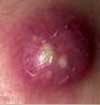Everyone is looking for ways to sweeten without using refined sugar, because of its high glycemic index and calories, and I know that some of you are big fans of artificial sweeteners like Nutrasweet™ or Splenda™ but there are alternatives that are natural and not chemicals, and that actually taste sweet. One of the newer (well, new to the US, it has been used in southeast asia for thousands of years as a sweetener) alternatives is Coconut Palm Sugar. It is a little hard to find sometimes, but it is sweet, tasty, and it is actually good for you because it is filled with vitamins and minerals!
What is Coconut Palm Sugar?
First, to clarify, Coconut sugar and Palm sugar are two different things, but it is frequently referred to as coconut palm sugar. Palm sugar is a sugar made from the sap of various palm trees such as the date palm, sago palm, or the sugar palm. Coconut sugar is made from the sap of the buds of coconut palms (the trees that grow coconuts). The sap is extracted, dried (using heat to remove the water content), and it if found in either liquid, crystal, or paste form and it can be used to add to various foods as a sweetener, so it truly is minimally processed.
How is it actually good for me?
Because the sweetness is from the natural sucrose found in the coconut palms, so it is a very low glycemic index food, which means that it is a safe alternative to sugar for diabetics, and it can be used the same way that you would use sugar in baking, coffee/tea, etc. It is a great source of vitamins and minerals like: potassium, iron, magnesium, and Vitamins B1, B2, B3, & B6. It’s chock full of good stuff for you, sweet, and it is a low glycemic index food! And it is considered a low glycemic index food, meaning that the sugars take time to get into your bloodstream, they are slowly absorbed, as opposed to refined sugar which increases your blood sugar levels rapidly; and then will quickly drop off. With a slower absorbed sugar, you tend to feel satiated longer, and you don’t have highs and lows of blood sugars as rapidly (which is why lower glycemic index foods are better for diabetics). Plus, it has a really dynamic taste, similar to brown sugar, but it really is much more dynamic; I love it. It does change the color of baking, for example, I made some cookies and used it; the flavor of the cookies were amazing, but they were more of a caramel color than cookies if you use regular refined sugar. Purely an aesthetic difference, as the cookies were gobbled right up!!
Buyer BEWARE
The one thing to make sure of though is that the coconut palm sugar you are buying is actually coconut palm sugar and isn’t filled with refined sugar. Sweet Tree (by Big Tree Farms in Bali, Indonesia) is a brand of coconut palm sugar that is certified as organic coconut palm sugar, so you know that you are getting the real deal, and it is your best bet. Just make sure that whatever brand you buy is certified! It is most often found in natural food stores, some asian specialty shops, and online (of course- but I always encourage people to support local stores!)
Give it a try, let me know what you think, and see fi you notice a difference. I am a huge believer, I almost exclusively use it….when I can find it!
Yours in Good Health
B


















